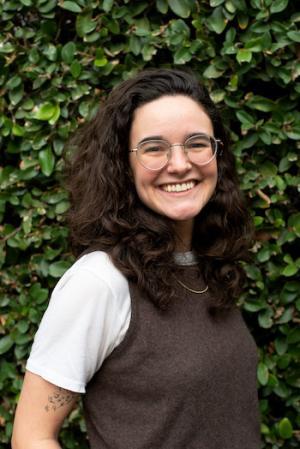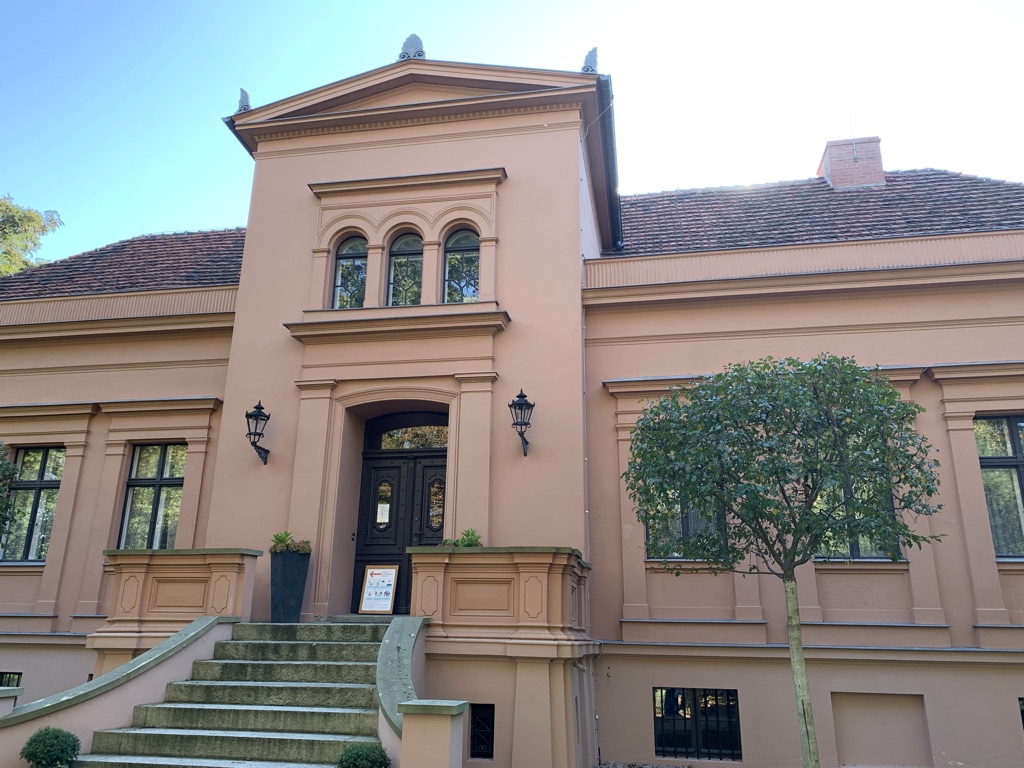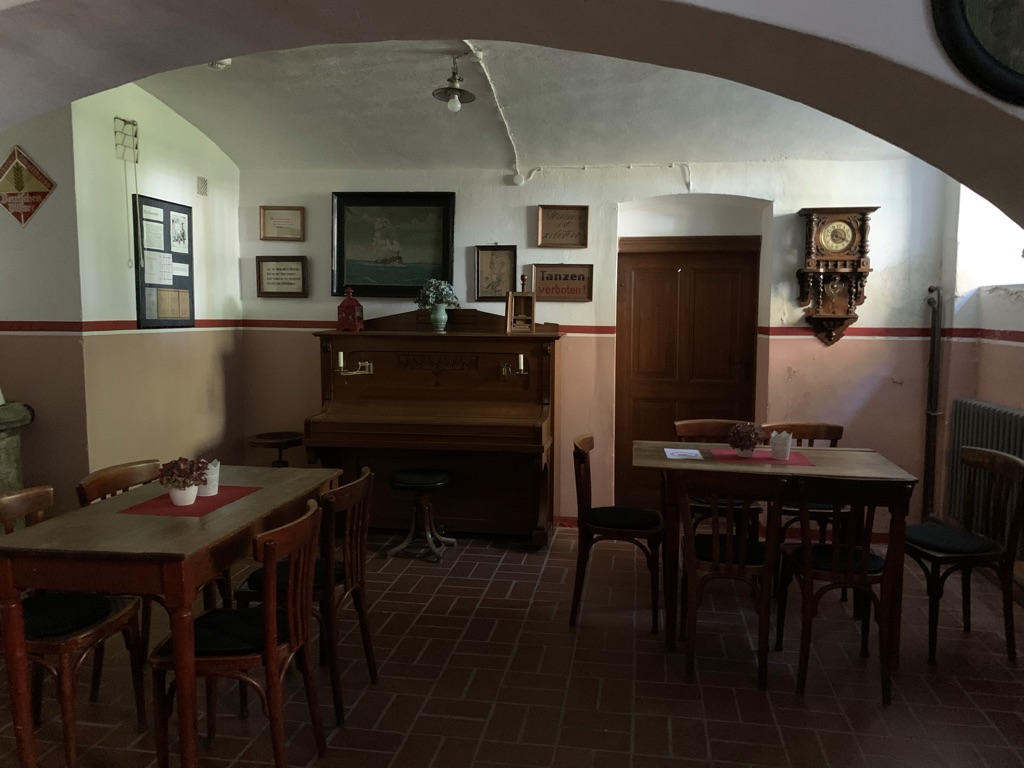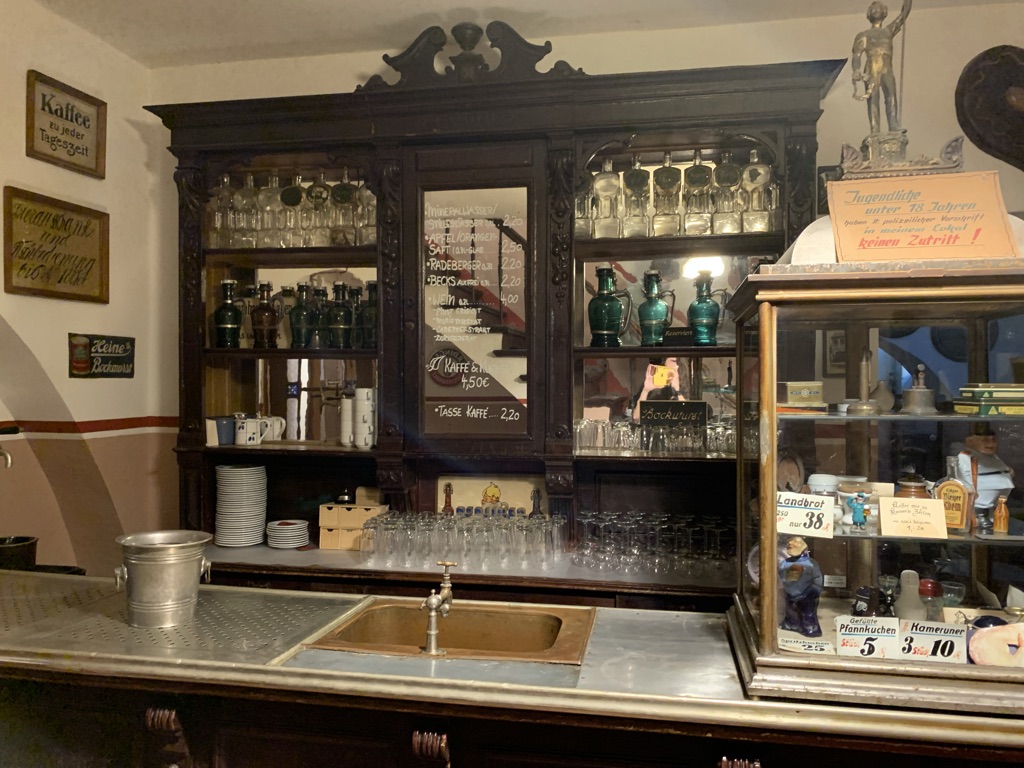PhD Student Spotlight, Madeline Adams
This quarter, I was able to speak with Madeline Adams, a PhD candidate in the Department of History, about her research, intriguing side paths, and favorite ways to relax. Through her research and course work she has developed a love for public history and a passion for understanding the LGBT community of the German Democratic Republic (GDR). Her research engages in an important study of the way LGBT people in the GDR built community and support systems. You can read more about her work and what she likes to do when she isn’t engaged in coursework or research below.
Madeline's dissertation, "Materiality and Memory in East German LGBT Communities, 1980s to the Present," explores the "networks of materiality, care, and media LGBT East Germans built during and after the German Democratic Republic (GDR)." She engages a wide range of evidence, including self-published magazines, political newsletters, photographs, and cabaret materials and seeks to understand, "how [these sources] were made and distributed.” Her analysis of the documents has led her to see that their existence and distribution helped make the LGBT communities possible. For example, she describes a chapter she has recently been working on in which she explores "the Jena- and later Weimar-based lesbian publication frau anders (woman different)." "Analyzing the magazine’s content," says Madeline, "illuminates contributors’ political and personal preoccupations during the tumultuous period of German reunification in the early 1990s. Additionally, the creation and circulation of frau anders built an epistolary network of intellectual exchange and mutual aid that connected people across the country."
Her interest in the study of gender, sexuality, and material culture in Central Europe in general, was sparked during her time as an undergraduate. She worked as an intern helping to "research and curate an exhibit on gender and food culture in the former Eastern Bloc." It was through that internship that she first came to the understanding that, "Objects offer us information that textual sources do not..." The experience in the museum also led her to see that researchers can, "use these objects to tell a story that reaches a broad audience." Her work has taken her to some intriguing places, too. While on a research trip she visited the Grunderzeit Museum in the Berlin suburb, Mahlsdorf. The museum is a villa, that was "the former home of Charlotte von Mahlsdorf, one of the GDR’s most eccentric and controversial LGBT figures. The museum houses von Mahlsdorf’s extensive collection of late-nineteenth century furniture and ephemera as well as one of the GDR’s most important gay bars, Mulackritze. Starting in the 1970s, Mulackritze was a foundational social and political space for the GDR’s first LGBT organization, the Homosexuelle InteressengemeinschaftBerlin (Homosexual Interest Group Berlin)."
One of the high points of her time at the University of Chicago, was in 2021 when she participated in the Public History Practicum. The course runs over two quarters with the first quarter focusing on establishing an academic foundation and the second emphasizing engagement with public-facing partner institutions. During her year in the program, the practicum partnered with Chicago Race Riot of 1919 Commemoration Project, the Illinois Civil Commitment Archive, and the Field Museum. Madeline says that "The course expanded my understanding of both public history scholarship and archival theory, which in turn shaped how I approach my dissertation research." Overall, she found the experience to be, "stimulating" because it allowed her to "engage with collaborative, creative work in what can otherwise be a very solitary degree program." Not only did the program give her a chance to work together with others, but it also compelled her "to think capaciously and on community-based terms about the creation and dissemination of historical knowledge."
Finally, I asked her what she likes to do when she isn't undertaking this fascinating research or participating in coursework. She says, "I really enjoy spending time outdoors. My partner and I go hiking, swimming, and camping together whenever we have the opportunity. When we were still in Chicago, we took lots of side trips to Indiana Dunes or up into the woods in Wisconsin. Now that we’re in Berlin, I’m looking forward to exploring Germany’s national parks and forests. Grad school has not ruined reading for me—I still read for pleasure constantly."
 THE UNIVERSITY OF CHICAGO
THE UNIVERSITY OF CHICAGO





